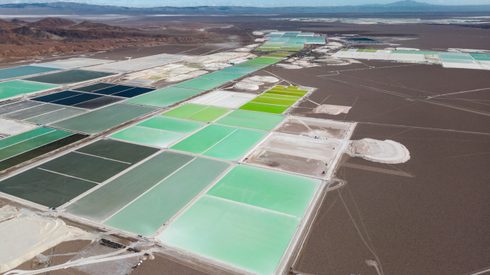Ellen Carey, chief external affairs officer at global traceability services provider Circulor, spoke on a panel covering the upcoming implementation of battery passports, on Wednesday September 20, the first day of the conference being held in Amsterdam.
She encouraged producers and other market participants to invest in and pursue greater and more transparent reporting of emissions and to abide by environmental, social, governance (ESG) standards.
Circulor’s services enable companies to gain visibility into their supply chains to demonstrate responsible sourcing, improve their ESG performance, reduce greenhouse gas (GHG) emissions and manage supply chain risks.
“We need the data and transparency, not only to provide to [original equipment manufacturers] but also to customers,” Carey said, adding that transparency offers a “marketing opportunity” for those who pursue it.
Panel participants agreed that early transparency could create a marketing opportunity, by helping to differentiate suppliers’ materials and appeal to customers, and could help to supplement legislative drives that might require investment in ESG-compliant technology.
Speaking on the same panel, lithium producer SQM’s director of external affairs, Stefan Debruyne, re-emphasized the importance of transparency in ESG reporting, and pointed out that end-consumers need to be informed about why they should value particular ESG-considerate products.
It was unlikely that governments would tell people to buy ESG-compliant electric vehicles (EVs) without showing them why, he said.
The EU approved its updated battery directive targeting circular battery production in June 2023. This proposed the introduction of a battery passport to track batteries’ ESG effects across the supply chain.
While battery passports will be required from 2027, panelists emphasized that early gathering – and the potential sharing – of information on the topic should be carried out before that time.
The information could be gathered, with some of it made available to the public, on the supply chain and ESG footprint for batteries in a number of categories, including those for EVs.
“I think we’re still in the early stages [of introducing transparency],” Carey said.
Alice Lim, head of corporate sustainability at the London Metal Exchange, stressed the importance of early transparency, saying that the exchange has already introduced its own passport system to foster transparency in the metal supply chain, stretching from BRM to base metals.
“The really big push from the LME’s side is the transparency… Having good, accurate data from the get-go is essential,” she said. “You can’t reduce what you can’t measure.” She also said that transparency is the precursor for emissions reductions.
The marketability of ESG-compliant commodities was already being seen in a number of sectors, including steelmaking, where a premium market has emerged for steel with low CO2 emissions.
Fastmarkets most recently assessed its green steel domestic, flat-rolled, differential to HRC index, exw Northern Europe, on September 14 at €100-250 ($107-267) per tonne, unchanged since August 24.
Keep up to date with the latest news and insights on our dedicated battery materials market page.






